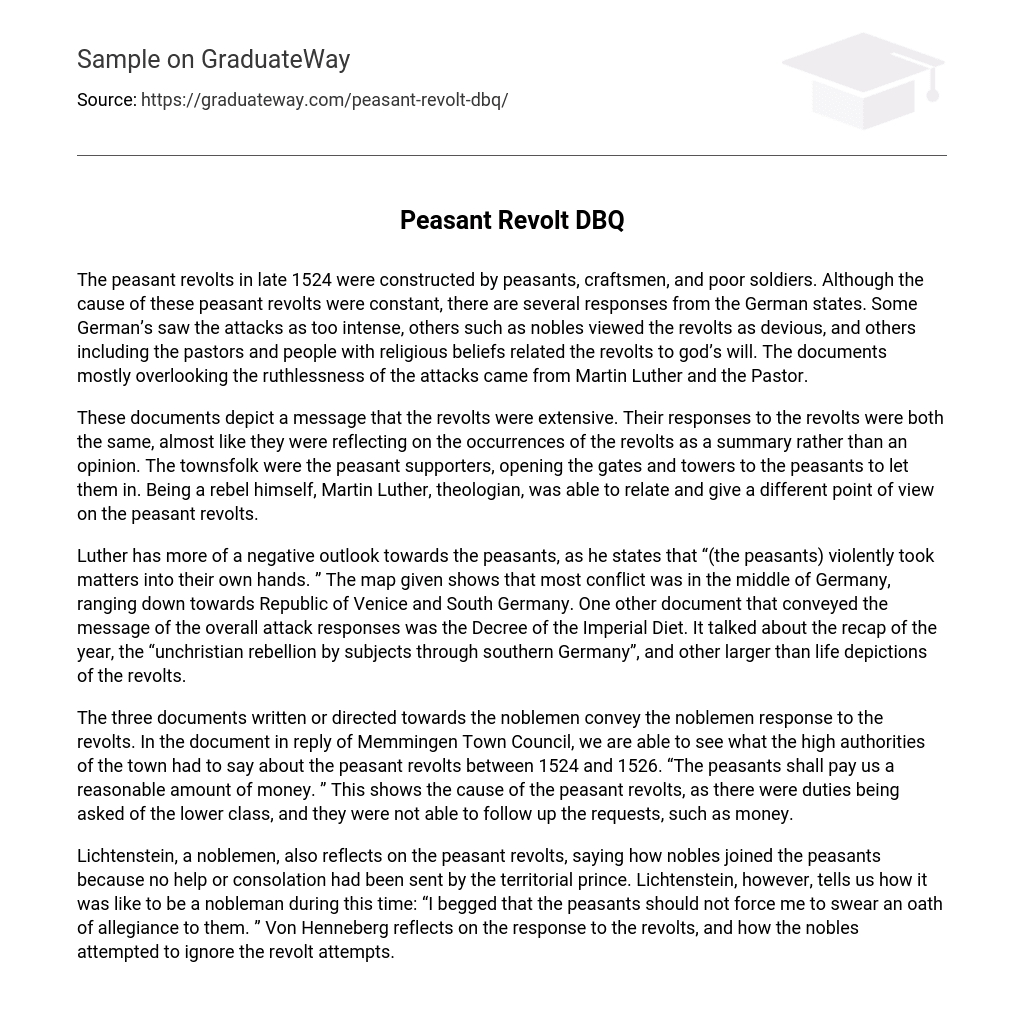The peasant revolts in late 1524 were orchestrated by peasants, craftsmen, and poor soldiers. Despite the consistent cause of these revolts, the German states responded in various ways. Certain Germans deemed the attacks too severe, while nobles saw them as cunning. On the other hand, pastors and those with religious convictions attributed the revolts to God’s will. Martin Luther and the Pastor largely neglected the brutality of the assaults in their documents.
These documents portray the idea that the revolts were widespread. The responses to the revolts were similar, almost as if they were providing a summary rather than personal opinions on the events. The townspeople who supported the peasants played a role by allowing them entry through the gates and towers. As an individual who rebelled against the establishment, theologian Martin Luther was able to offer a unique perspective on the peasant revolts.
Luther demonstrates a more pessimistic view of the peasants, expressing that they “violently took matters into their own hands.” According to the provided map, the majority of the conflict occurred in central Germany, extending towards the Republic of Venice and southern Germany. Another relevant document, the Decree of the Imperial Diet, also conveys the response to the attacks. It discusses a summary of the year, the “unchristian rebellion by subjects through southern Germany,” and offers exaggerated depictions of the uprisings.
The three documents aimed at noblemen communicate the response of the nobility to the revolts. In the document responding to Memmingen Town Council, we can find the town’s authorities’ perspective on the peasant uprisings from 1524 to 1526. They state, “The peasants should provide us with a fair sum of money.” This illustrates that the reason for the peasant revolts was the imposition of obligations on the lower class, which they were unable to fulfill, including financial contributions.
Lichtenstein, a nobleman, reflects on the peasant revolts and explains that nobles also joined the peasants due to the lack of help or consolation from the territorial prince. However, Lichtenstein shares his personal experience as a nobleman during this period: “I pleaded with the peasants not to coerce me into swearing an oath of allegiance to them.” Von Henneberg, on the other hand, reflects on the reaction to the revolts and how the nobles tried to disregard the attempted revolts.





